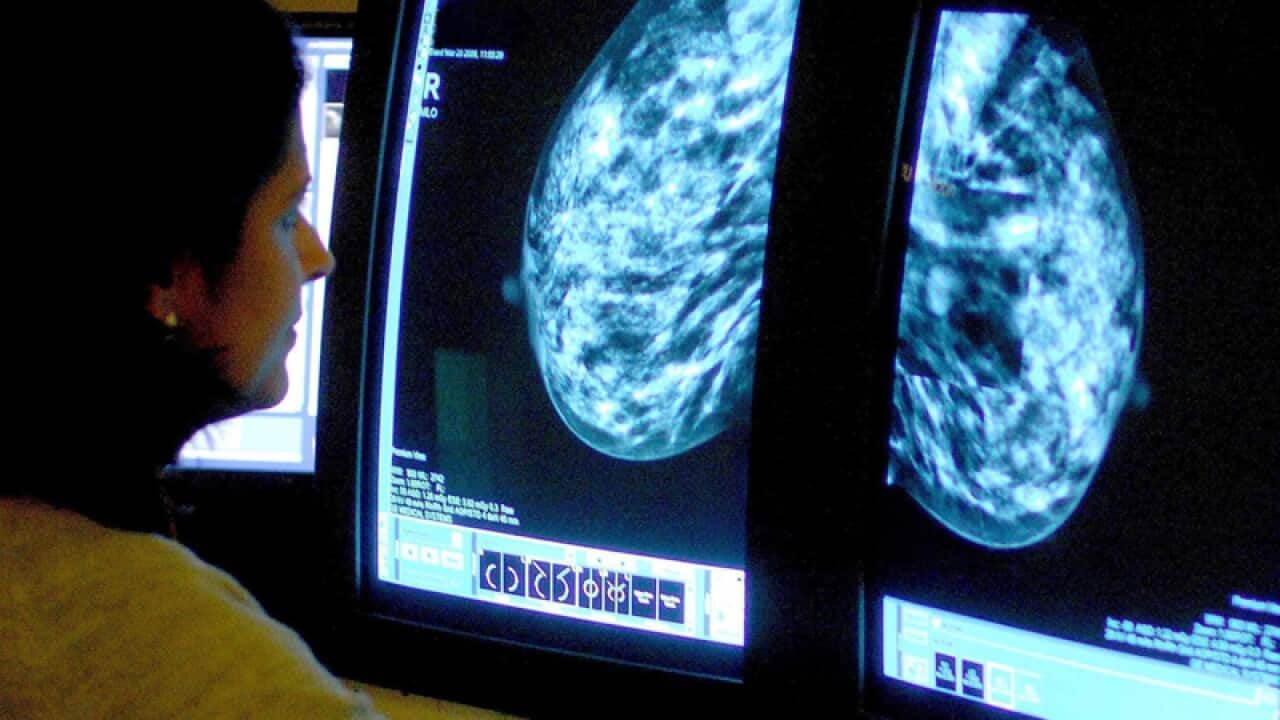Australian scientists have made a discovery that could lead to a simple blood test with the potential to conquer treatment-resistant breast cancer.
The breakthrough relates to the most common form of the disease, oestrogen-receptor positive breast cancer.
The test would be used to determine when cancer cells are most vulnerable to chemotherapy, which would be used to kill them off and prevent a relapse.
At present patients with this type of cancer typically receive anti-oestrogen therapy and generally respond well. Within 15 years, however, half develop drug resistance, followed by relapse and death.
Scientists believe the anti-oestrogen therapy weakens the BCL-2 gene, which protects the cancer.
The idea would be to test all patients and correctly time the use of chemotherapy to kill off the cancer and prevent a relapse when the gene is sufficiently weak.
"Excitingly, this is something that could be implemented into clinical practice very quickly," says Dr Andrew Stone of Sydney's Garvan Institute of Medical Research.
He worked with colleagues Professor Susan Clark and Professor Liz Musgrove on the research, in collaboration with scientists from Cardiff University.
"It could provide an affordable, potentially life-saving solution to about a quarter of people with breast cancer."
The research, published online in the journal Molecular Cancer Therapeutics, suggests the technology to profile patients already exists and the drugs they will respond to are in everyday use.
At present, there are three therapeutic strategies for oestrogen-receptor positive breast cancer.
These are blocking the body's production of oestrogen, using the drug tamoxifen to prevent oestrogen from binding to the oestrogen receptor and destroying the oestrogen receptor completely.
Over time, however, many tumours become resistant. When one form of treatment starts to fail, a second is put in place and then a third. Response times shrink and tumours start to spread to other parts of the body, usually the brain, lungs, liver and bone.
"Of course this is only preliminary research. But a clinical trial could be set up very easily.
"We believe it could provide a new diagnostic and therapeutic strategy in oestrogen-receptor positive breast cancer and could benefit the lives of millions of people worldwide," says Dr Stone.
Cancer specialist Professor Catriona McNeil has welcomed the research as it validates the current practice of using chemotherapy if hormone tablets stop working.
She says a big challenge for doctors is to determine who needs what treatment.
"The current way that we determine who gets what is fairly blunt. It is based on pretty crude indicators such as how big the tumour is."

